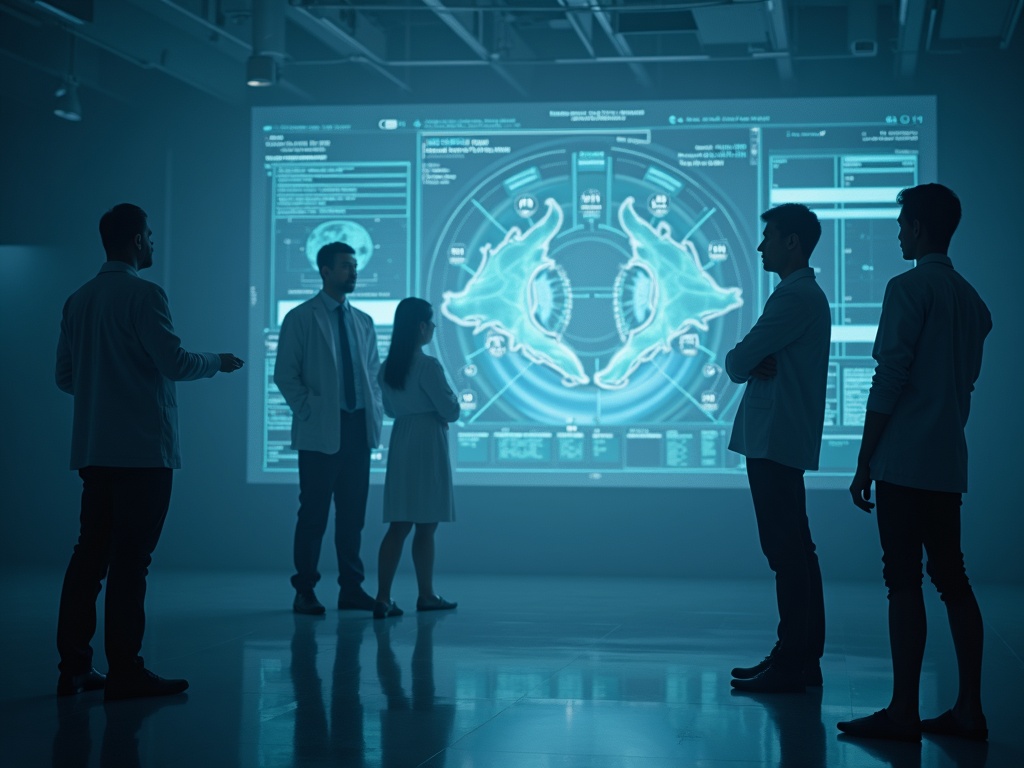AI in Healthcare: Revolutionizing Medical Diagnosis and Patient Access
Introduction
Artificial Intelligence (AI) is swiftly transforming the landscape of healthcare, bringing significant advancements to medical diagnosis and patient care. This revolution is largely driven by the development of sophisticated AI tools, particularly Large Language Models (LLMs), which are changing the way medical professionals deliver services and interact with patients. The fusion of AI technology into healthcare practices not only boosts efficiency but also holds the promise of more personalized and accurate medical care. As healthcare innovation continues to evolve, understanding the role of AI in reshaping medical practices is imperative for stakeholders across the industry, from healthcare providers to patients.
Background
The concept of AI in healthcare is not entirely new; for decades, technological tools have been used to augment healthcare services. However, the introduction of advanced AI tools, especially those using LLMs, has elevated the possible applications of AI in medical diagnostics to unprecedented levels. Companies like Akido Labs have been at the forefront of these innovations. Their ScopeAI system utilizes LLMs to provide rapid patient diagnoses, fundamentally altering the workflow of medical appointments. By employing AI to aid medical assistants in handling patient consultations, Akido Labs exemplifies how AI tools reduce the burden on healthcare professionals, allowing them to focus more on complex patient needs.
Trend
In recent years, the adoption of LLMs in healthcare has surged, anchored by pioneering efforts like those of Akido Labs. Their approach allows medical assistants to conduct initial consultations, with AI managing much of the diagnostic work—a system that enables doctors to attend to four to five times more patients than traditional methods would permit (Technology Review, source). This example illustrates how AI tools not only enhance efficiency but also stimulate broader healthcare innovation. Nonetheless, this rapid evolution sparks discussions about potential disparities in care quality, particularly concerning underserved populations like Medicaid patients.
Insight
The integration of AI into medical diagnosis brings potential benefits such as improved accuracy in identifying diseases and conditions, given the AI’s ability to process vast amounts of data quickly. However, as AI increases efficiency, there are emotional and practical implications for patients. Many worry about the depersonalization of healthcare or reliance on algorithms for critical health decisions. Experts like Jared Goodner emphasize a balanced approach where AI supports but doesn’t fully replace human judgment, underscoring the importance of maintaining quality care across all sectors, particularly for Medicaid patients who might already face access challenges.
Forecast
Looking forward, AI tools in healthcare are expected to become even more sophisticated, potentially offering real-time diagnostics and personalized treatment plans based on comprehensive patient data. However, with these advancements come ethical considerations, particularly around patient data privacy and the equitable distribution of AI’s benefits. The introduction of regulatory frameworks will likely play a crucial role in ensuring AI-driven healthcare practices remain ethical and beneficial. Access to quality healthcare could be dramatically improved, but ensuring this technological progress does not widen the gap for disadvantaged groups will be crucial.
Call to Action
Staying informed about the burgeoning advances in AI and healthcare is essential for anyone engaged in this field. Engaging with pioneering companies like Akido Labs can offer insights into how AI-driven solutions are shaping the future. As AI continues to redefine healthcare accessibility and efficiency, the challenge will be to ensure this revolution is inclusive and equitable for all patient demographics.
For further insights, consider reading the related articles on Akido Labs and their transformative role in medical diagnostics through AI (source 1 and source 2).
